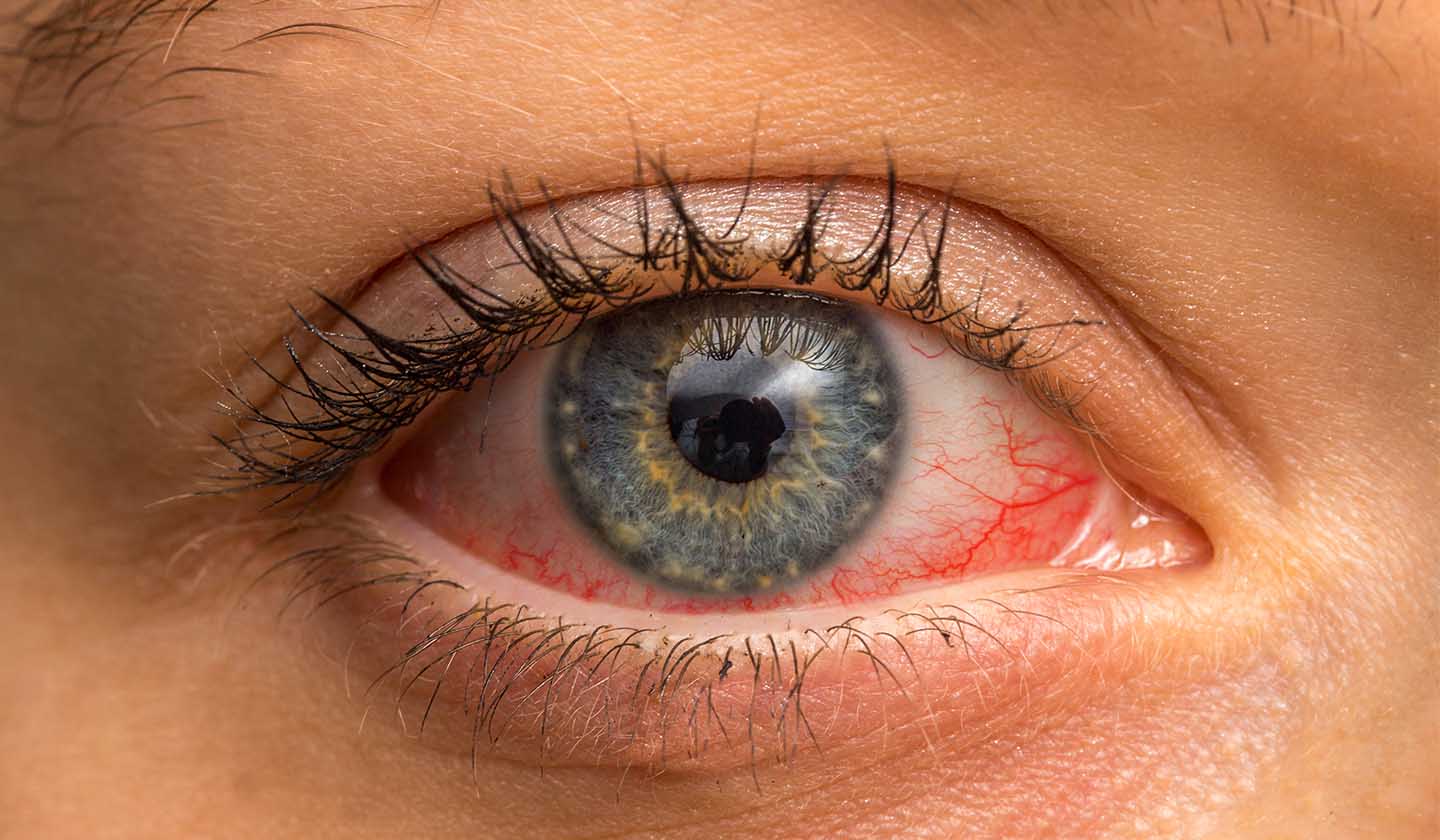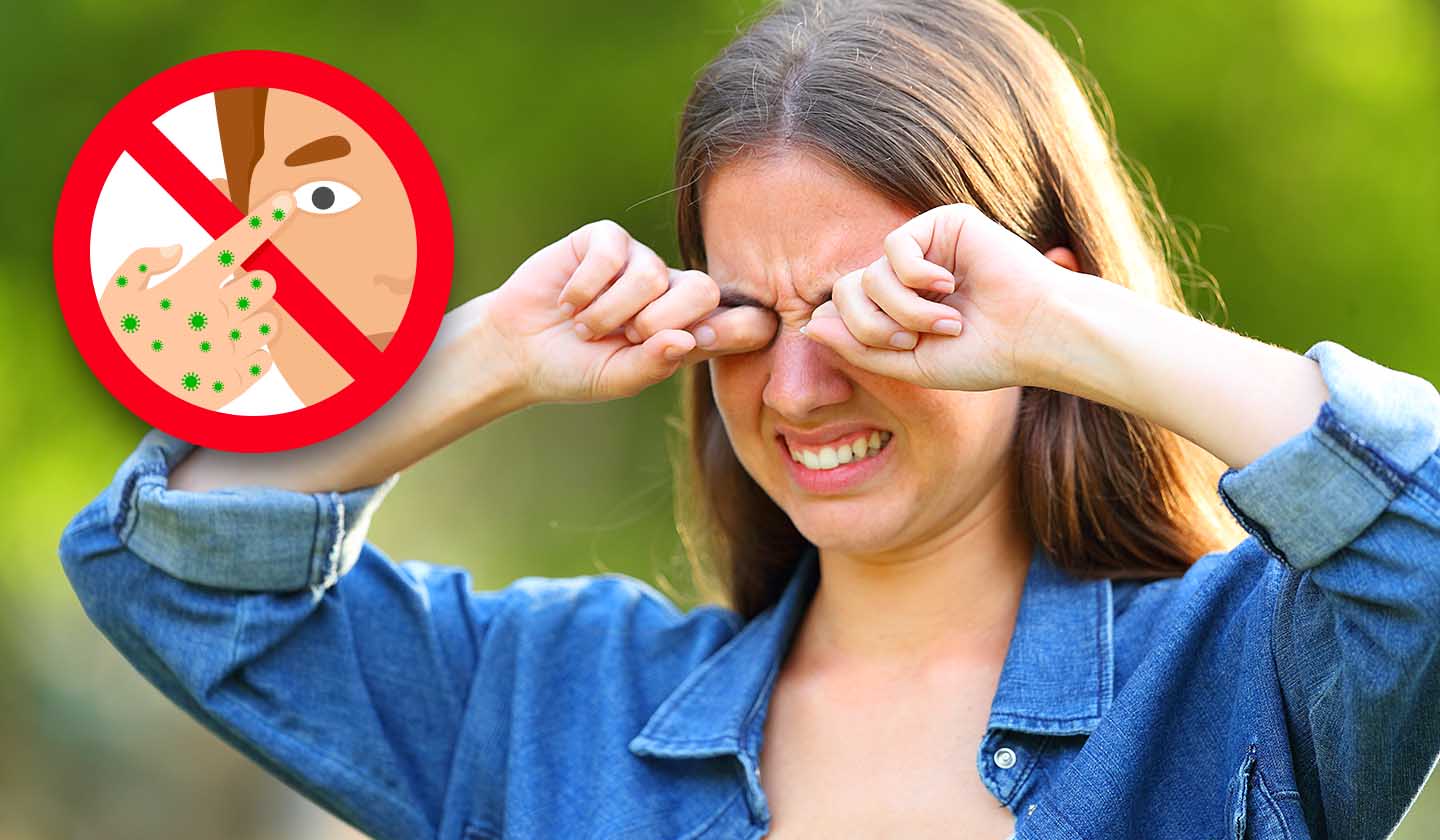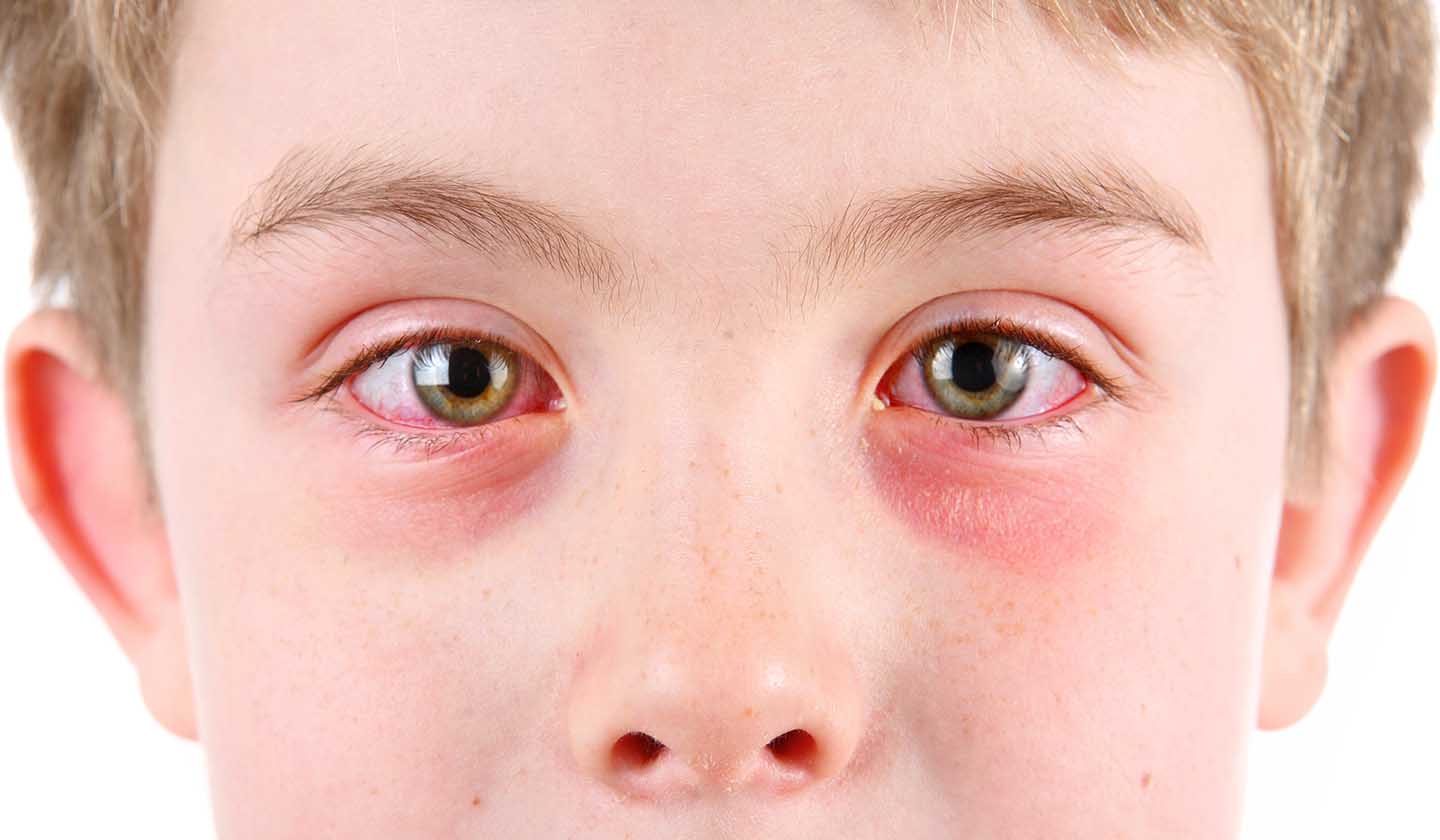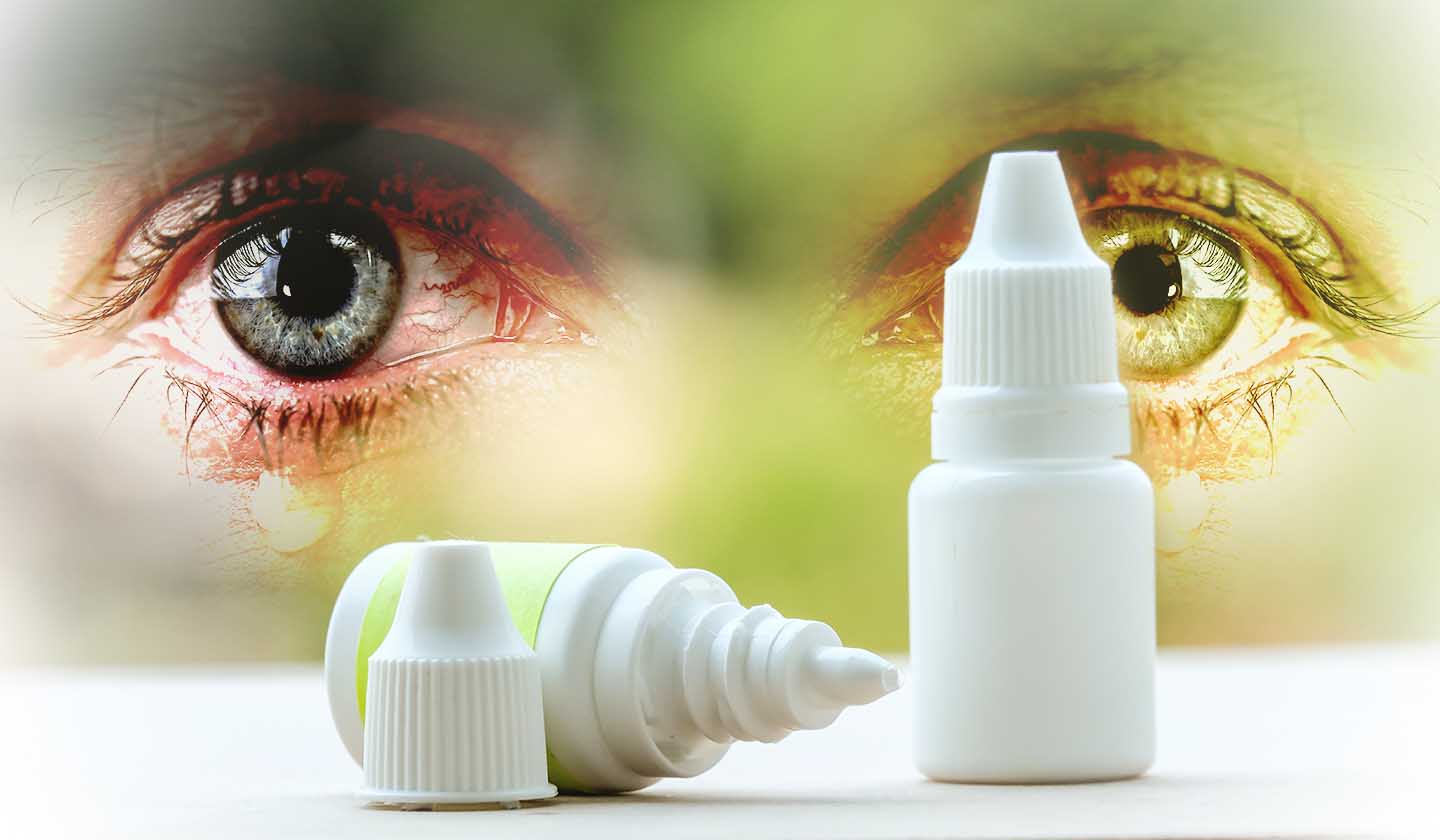Allergies
Allergic conjunctivitis - To treat in the blink of an eye

What is conjunctivitis?
It is an inflammation or infection of the eye's conjunctiva (a very thin and transparent membrane that covers the surface of the eye and the inner surface of the eyelids) that can be intermittent or chronic and that translates into redness, watery eyes and itching.
This inflammation may be due to an allergic reaction (allergic conjunctivitis), or to the action of a virus (viral conjunctivitis) or bacteria (bacterial conjunctivitis).
In this article we will address allergic conjunctivitis, which, although not considered a particularly serious condition, can be quite uncomfortable and prevent you from performing everyday tasks.

Types of allergic conjunctivitis
Allergic conjunctivitis results from the body's allergic response triggered by an airborne allergen that enters the eyes.
- Seasonal allergic conjunctivitis - commonly known as hay fever. It occurs mainly in spring/autumn (due to the higher concentration of allergens in the air - pollen from trees, grasses, or weeds, reaching a peak between April and July);
- Perennial allergic conjunctivitis - this condition is more likely to occur year-round. The most common allergens are dust mites, moulds, and animal hair;

Symptoms
Symptoms affect both eyes and are more frequent in people with atopy often occurring in patients with allergic rhinitis.
- Redness
- Abundant tear or viscous discharge
- Itch
- Photosensitivity
- Swelling of the eyelid
- Foreign body sensation

Treatment
The main measure will be to avoid contact with known allergens, however, there are drugs that help to relieve the symptoms.
The following non-prescription drug therapy is available at your local pharmacy:
- Topical antihistamines - azelastine, ketotifen
- Oral antihistamines (less effective for treating eye symptoms than topical antihistamines) - cetirizine, loratadine, fexofenadine
- Topical decongestants - oxymetazoline
- Mast cell stabilizers - sodium cromoglycate
- Others (provide comfort by its moisturizing or refreshing action) - artificial tears, ectoine associated with hyaluronic acid, sterile saline
In more severe cases of allergic conjunctivitis, your doctor may prescribe other types of drugs (subject to prescription):
- Non-steroidal anti-inflammatory drugs - diclofenac, ketorolac
- Corticosteroids - dexamethasone, fluorometholone, prednisolone
Your doctor may also opt for specific immunotherapy (or anti-allergic vaccination).
This therapy is based on the allergen immunotherapy that causes the allergic reaction. Once the allergen is identified, specific extracts are prepared and administered to the patient. Therefore, a re-education of the immune system is intended, decreasing the body's sensitivity to the allergen.

Some recommendations
Whatever the therapeutic approach to allergic conjunctivitis, you should still follow these recommendations in order to lessen the impact of this allergic manifestation:
- Air the house when pollen concentration is low;
- Avoid areas with a higher concentration of allergens, especially during the pollination period, windy, hot and dry days. Near the sea, due to the higher humidity, there is less concentration of pollens. Check your local allergy forecasts.
- Avoid having pollinating plants indoors;
- Wear sunglasses when you are on the street;
- Do not rub your eyes;
- Wash your hands frequently;
- Avoid wearing contact lenses or makeup;
- When you are traveling by car, close the windows; when you are traveling by motorcycle, wear a full-face helmet with a closed visor;
- Apply eye drops with antihistamine when you know you will be in a place where there is a higher concentration of allergens.
Keep in mind that:
These recommendations are generally effective for the management of allergic conjunctivitis, however if symptoms persist or if there is photophobia, eye pain, vision changes or abnormal secretions, you should seek medical advice.
Sources
iSaúde
Farmácia Distribuição Magazine
Também lhe poderá interessar
Sight






